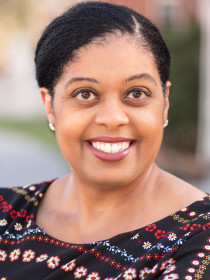
Larissa Malone
Connect with Larissa
About Larissa
Malone's research centers on the minoritized experience in schooling. Overarching themes in Malone's writing rests at the intersection of schooling, race and racism, and tangential disciplines, such as faith, geography, identity development, and parenting. Malone is the founder of Maine Black Educators Collective, an organization that supports Black educators in the state of Maine through educational opportunities, social-emotional connection, and advocacy. She consults with and serves on the board of various educational non-profits. She was the 2022 recipient of the Maine Education Association's Human and Civil Rights Award for her contribution to school success in this area.
Contributions
In the News
Publications
Explored the experiences within a school district where diversity, equity, and inclusion efforts have been ongoing. Found that there was an existence of a racial hierarchy and an anti-Black ideation and implications include the need for educators to raise awareness and the need to counter individual actions and institutional racialized structures.
The central tenets of an emerging theory, FaithCrit, are outlined to provide a framework that calls on the consideration of religio-spiritual identity. Rooted in Critical Race Theory, this article brings to light the existant underpinnings within the CRT movement to address the complementary nature of spiritual truths and social justice. A compelling case is made for the inclusion of faith in scholarship.
Revisits Derrick Bell’s chapter Brown Reconceived: An Alternative Scenario and its relevancy to a post-pandemic context.
Chronicles the self-emancipatory journey of two Black female scholars from small, predominantly White liberal institutions in the American Midwest, through narrative inquiry, and by employing an Africana womanist lens.
Discusses the consequences of educational gerrymandering, the practice of dividing territorial boundaries in a school district in order to design a particular outcome. Highlights a school district's decision to increase racial integration through this practice. Utilizing critical race spacial analysis, the effects on the Black sub-community, geographically and socially, are explored.
Considers equity as a crisis faced in classrooms across America. As such, an emergency framework is utilized to propose an approach that is apropos to the intense urgency a crisis requires. Concludes that the level of inequity currently allowed in the field of education must be honestly assessed and a comprehensive plan that engages stake-holders must be realized.
Departing from the all too common deficit orientation toward Black student academic performance, this article focuses on how families and students negotiate the challenges and opportunities in a school district. Reveals how dual identity consciousness combined with a strong achievement orientation and adaptive strategies facilitated acculturation.